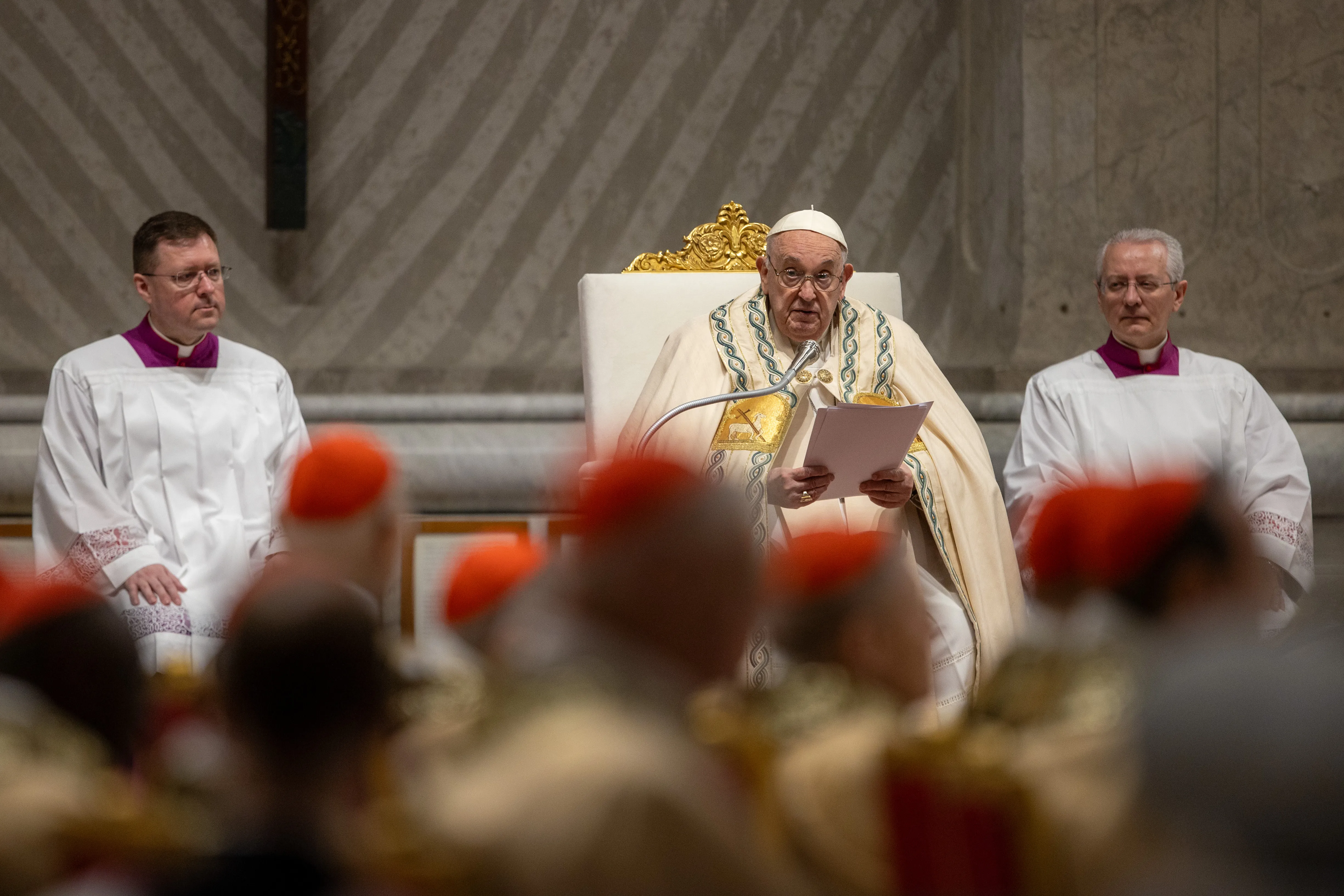Rome Newsroom, 30 March, 2024 / 7:00 pm (ACI Africa).
The following is the text of Pope Francis' homily delivered at the Vatican's 2024 Easter Vigil.
The women go to the tomb at daybreak, yet they still feel the darkness of night. They continue to walk, yet their hearts remain at the foot of the cross. The tears of Good Friday are not yet dried; they are grief-stricken, overwhelmed by the sense that all has been said and done. A stone has sealed the fate of Jesus. They are concerned about that stone, for they wonder: “Who will roll away the stone for us from the entrance to the tomb?” (Mk 16:3). Yet once they arrive, they are taken aback when they see the amazing power of the Easter event: “When they looked up, they saw that the stone, which was very large, had already been rolled back” (Mk 16:4).
Let us stop and reflect on these two moments, which bring us to the unexpected joy of Easter. The woman anxiously wonder: Who will roll away the stone from the tomb? Then, looking up, they see that it had already been rolled back.
First, there is the question that troubles their grieving hearts: Who will roll away the stone from the tomb? That stone marked the end of Jesus’ story, now buried in the night of death. He, the life that came into the world, had been killed. He, who proclaimed the merciful love of the Father, had met with no mercy. He, who relieved sinners of the burden of their condemnation, had been condemned to the cross. The Prince of Peace, who freed a woman caught in adultery from a vicious stoning, now lay buried behind a great stone. That stone, an overwhelming obstacle, symbolized what the women felt in their hearts. It represented the end of their hopes, now dashed by the obscure and sorrowful mystery that put an end to their dreams.
Brothers and sisters, it can also be that way with us. There are times when we may feel that a great stone blocks the door of our hearts, stifling life, extinguishing hope, imprisoning us in the tomb of our fears and regrets, and standing in the way of joy and hope. We encounter such “tombstones” on our journey through life in all the experiences and situations that rob us of enthusiasm and of the strength to persevere. We encounter them at times of sorrow: in the emptiness left by the death of our loved ones, in the failures and fears that hold us back from accomplishing the good we mean to do. We encounter them in all the forms of self-absorption that stifle our impulses to generosity and sincere love, in the rubber walls of selfishness and indifference that hold us back in the effort to build more just and humane cities and societies, in all our aspirations for peace that are shattered by cruel hatred and the brutality of war. When we experience these disappointments, do we also have the sensation that all these dreams are doomed to failure, and that we too should ask ourselves in anguish: “Who will roll away the stone from the tomb?”







